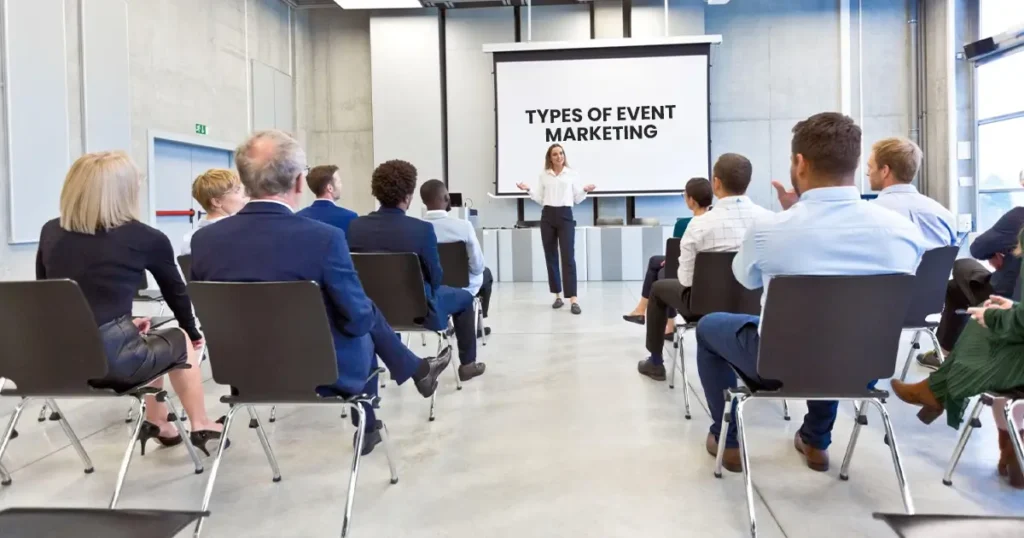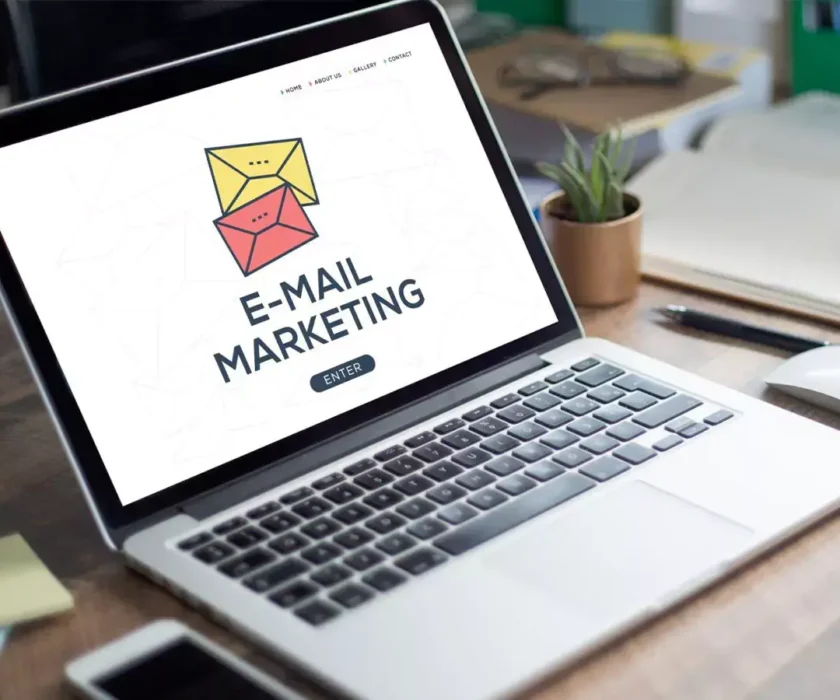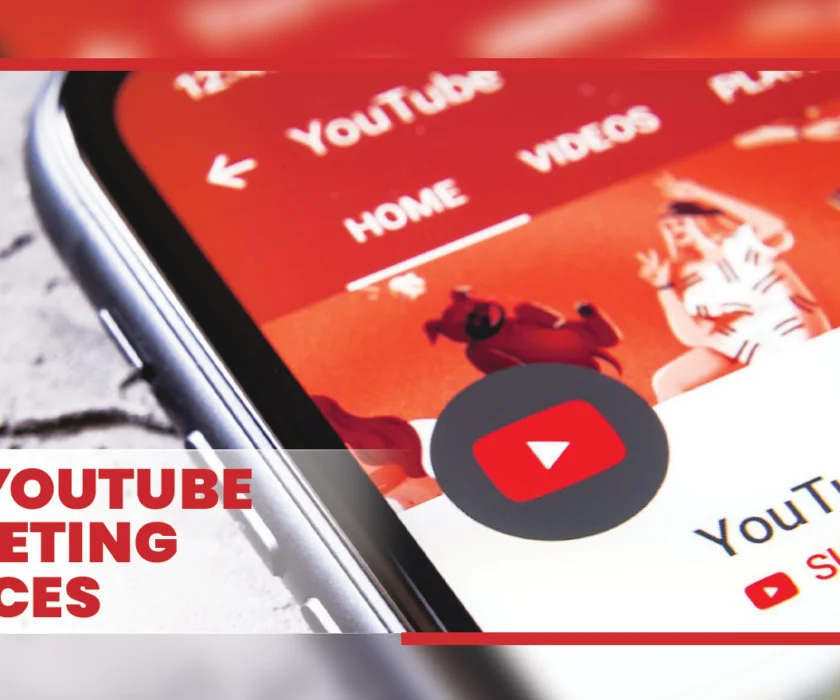In the fast-paced business and consumer engagement world, standing out in the crowd is a vital goal for any brand. Event marketing is essential in this scenario, bridging the gap between virtual and face-to-face interaction.
It’s not just about promoting a product or service but about creating a memorable experience that fosters lasting connections.
Event marketing is a dynamic, engaging tool that transcends traditional advertising barriers, connecting brands directly with their audience.
Whether it’s a grand product launch, a focused workshop, or an expansive trade show, event marketing helps build brand awareness, generate leads, and enhance customer relationships.
How important is event marketing? So, this article will explore the significance of event marketing, its multifaceted benefits and why it is a critical element in the modern marketing mix.
Now, what makes event marketing so essential?

Importance of Event Marketing
- Connecting With Your Audience
Event marketing helps build a bridge between you and your customers. It’s not just about promoting a product; it’s about creating an experience. Have you ever felt that connection at a concert or a fair? That’s the magic of event marketing at work.
- Advantages of Event Management
Now, let’s say you’re planning something big. How do you ensure that everything goes smoothly? Enter the advantages of event management. It’s like having a maestro conduct the orchestra of your event, ensuring every detail is perfect.
- Boosting Tourism
Did you know that the importance of events in tourism is like adding a cherry on top of your tourism sundae? Big events can draw crowds from all around the world, spotlighting a city or a place.
- Innovation And Creativity
Ever found yourself stuck in a creative rut? Event marketing can be your escape. You can think out of the box and innovate by exploring marketing events ideas, just like what the George Brown Sports and Event Marketing program teaches.
- Collaboration With Event Marketing Agencies
Thinking big? Team up with event marketing agencies. It’s like finding the perfect dance partner – they know the steps, the rhythm, and how to make you shine.
To sum up, why is event marketing important? It’s like cooking your favourite meal; you need all the right ingredients to make it right.
From the process of event marketing to the advantages of event management, from boosting tourism to partnering with agencies like George Brown Sports and Event Marketing, it all comes together to create something extraordinary.
Remember the last time you attended an event that left you in awe? Now you know what went into it. Event marketing isn’t just about selling; it’s about connecting, engaging, and creating an unforgettable experience. Now, who wouldn’t want to be part of that party?

Types of Event Marketing
Event marketing is a vibrant and dynamic field, offering many opportunities to connect with audiences. Here’s an overview of the most common types of event marketing:
- Trade Shows And Expositions
These gatherings provide an ideal platform for businesses to showcase products and network with industry professionals.
- Seminars And Workshops
Focused on educating attendees, these events can build brand authority and deepen relationships with clients or customers.
- Product Launches
A new product launch event creates excitement and anticipation, allowing firsthand interaction with the latest offerings.
- Virtual Events
In a digital world, virtual events connect audiences globally without geographical boundaries. Examples are Webinars, virtual trade shows, and online product demonstrations.
- Charity And Fundraising Events
These promote a brand and support noble causes, enhancing a company’s social image.
- Sporting And Entertainment Events
Sponsoring or hosting these events can elevate brand visibility and resonate with a more diverse audience.
- Influencer Events
Collaborating with influencers in exclusive gatherings can amplify brand reach and credibility among specific demographics.

Benefits of Event Marketing
Event marketing isn’t just about throwing a big party; it’s a strategic tool with numerous benefits for businesses:
- Brand Engagement
Events allow for direct consumer interaction, creating a more personal and memorable connection.
- Lead Generation
You can attract potential clients and collect valuable leads by showcasing products or services engagingly.
- Increase Sales
Through product demonstrations and face-to-face interaction, events can directly lead to an increase in sales.
- Content Creation
Events provide unique content opportunities, from live streaming to post-event blogs and social media posts.
- Customer Feedback
Direct customer interaction offers invaluable insights and feedback, helping continuously improve products or services.
- Strengthening Partnerships
Events foster collaboration and partnerships with other businesses and industry leaders, creating a support network and mutual growth.
Boosting Reputation:
Hosting or participating in prestigious events can boost your brand’s reputation and position it as a thought leader.
In conclusion, with its diverse types and tangible benefits, event marketing has become essential to modern marketing strategies. It provides an innovative and engaging way to connect with audiences, build brand loyalty, and achieve business goals.
Whether it’s a global trade show or a local workshop, each event offers unique opportunities that can be tailored to meet the specific needs and objectives of a brand.

Event Marketing: Advantages And Disadvantages
Event marketing has been one of the most dynamic and interactive ways to engage consumers.
It’s all about creating a lasting impression that resonates with your audience, making them more likely to engage with your brand. However, event marketing has advantages and disadvantages like any other marketing strategy.
Advantages:
The following are the advantages of event marketing:
- Enhanced Customer Engagement:
Event marketing allows businesses to interact directly with potential clients. This live interaction creates a personal connection, fostering trust and understanding.
- Immediate Feedback:
Engaging customers directly at an event means instant feedback. You can learn what resonates with your audience and what doesn’t, allowing you to make immediate adjustments.
- Brand Visibility:
Hosting or participating in an event exposes your brand to a large and often targeted audience. This increased visibility can lead to higher brand recognition.
- Opportunity For Sales:
Events often lead to immediate sales opportunities. Potential customers impressed by your presentation may be inclined to purchase the spot.
- Content Creation Opportunities:
Events offer ample opportunities to create content such as videos, photos, and testimonials that can be used for future marketing efforts.
Disadvantages:
- High Costs:
Planning, organizing, and executing a successful event can be costly. Venue rental, staffing, promotion, and other expenses can quickly increase.
- Risk of Low Turnout:
Despite the best planning, there’s always a risk that attendance might be lower than expected. Factors such as weather, conflicting events, or poor promotion can lead to a disappointing turnout.
- Time-Consuming:
The time required to plan and manage an event can be substantial. This may divert focus and resources from other critical areas of the business.
- Potential Negative Impact:
If an event is poorly managed or doesn’t meet attendees’ expectations, it can create a negative impression of your brand.
- Measuring ROI Can Be Difficult:
Quantifying the success of an event in tangible terms can be challenging. It may be hard to correlate sales or engagement to a specific event directly.
Final Thoughts
The importance of event marketing in today’s business environment cannot be understated. Through carefully planned and executed events, businesses can engage with their audience more personally and effectively.
Event marketing offers a platform to tell a brand’s story, demonstrate products, and connect with potential customers meaningfully. The emotional connection forged during these live experiences often translates into customer loyalty and long-term revenue growth.
If you found the blog post useful, share your thoughts with us!
Marketing for an event is crucial because it creates awareness, attracts the right audience, and helps promote the event’s key messages.
Without marketing, potential attendees may never know about the event, leading to lower attendance and less success in achieving the event’s goals.
The primary goal of event marketing is to promote a specific event and attract attendees. It aims to enhance brand visibility, generate interest, increase engagement, and achieve specific business objectives, such as sales or leads related to the event.
Event marketing can be highly effective when strategically planned and executed. It allows businesses to interact directly with their target audience, providing a personalized experience.
This face-to-face interaction can lead to higher conversion rates, fostering brand loyalty and building long-term relationships.
The most important role of marketing in event management is to align the event with the brand’s overall goals, create awareness, and drive attendance.
It ensures that the event reaches the right audience, provides value, and creates a memorable experience that aligns with the brand’s identity.
Target Audience Identification: Knowing who you want to attract to the event.
Content Creation: Crafting compelling messages and visuals that resonate with the audience.
Multi-Channel Promotion: Utilizing various channels such as social media, email, and print.
Engagement Strategies: Creating interactive experiences to engage attendees.
Measurement and Analytics: Evaluating the success of the event through data analysis.
Audience Targeting: Understanding and reaching the right audience with relevant messaging.
Strategic Planning: Carefully planning the event’s promotion to align with overall business goals and ensure a successful outcome.
Event marketing can enhance branding by providing a live platform for the brand to interact with its audience. It helps create a more personal connection, showcasing the brand’s values and personality and building brand loyalty.
Successful event marketing requires careful planning, understanding the target audience, crafting compelling content, selecting the right marketing channels, engaging attendees, and evaluating success through continuous monitoring and analytics.
Event management ensures the seamless execution of an event. From planning to execution, it takes care of every detail, providing a positive experience for attendees and achieving the desired outcomes for the brand.
Event marketing provides a unique opportunity for direct interaction with potential customers. This engagement can lead to an immediate increase in sales and long-term relationships, driving repeat business.
The success rate of event marketing varies depending on various factors like planning, targeting, engagement strategies, and alignment with brand goals. Executing well can lead to high conversion rates and a significant return on investment (ROI).
The 4 P’s in event marketing are:
Product: The event itself and its unique selling points.
Price: The attending cost, including possible tiered pricing for different access levels.
Place: The venue and how it aligns with the event’s theme and audience.
Promotion: How the event is advertised and marketed.




